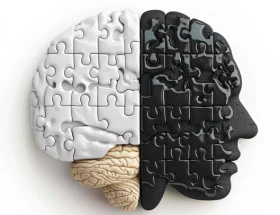This study examines how educational attainment and gender intersect to influence performance on the Jouve Cerebrals Test of Induction (JCTI). By analyzing a diverse group of 251 individuals, the research highlights how cognitive performance varies across different stages of education and between genders.
Background
The JCTI has been widely used to assess inductive reasoning, a core cognitive skill. Past research often generalized performance trends without considering how factors like gender and education level might interact. This study seeks to fill that gap by focusing on these two variables, particularly during formative educational stages and as educational complexity increases.
Key Insights
- Parity During Early Education: The study found no significant differences in cognitive performance between genders during middle and high school. This suggests that educational experiences at these levels may not contribute to performance disparities in inductive reasoning.
- Divergence in Higher Education: At the collegiate level, male participants demonstrated stronger performance compared to female participants. This indicates that as educational demands increase, performance differences may emerge.
- Limitations and Context: While the findings are meaningful, they should be interpreted cautiously due to the limited sample size and the lack of consideration for factors like socio-economic status or cultural influences.
Significance
The results provide valuable insights into the development of cognitive skills and how gender differences manifest at different educational stages. These findings highlight the importance of understanding the diverse factors that influence cognitive performance, which could inform teaching strategies aimed at fostering equitable educational outcomes.
Future Directions
Future research should expand on this work by incorporating a larger, more diverse sample and investigating additional variables such as socio-economic background, cultural factors, and specific learning environments. Such studies could help identify the underlying causes of observed disparities and support the development of targeted interventions to bridge performance gaps.
Conclusion
This study underscores the need to understand how education and gender interact to shape cognitive performance. By addressing these questions, educators and researchers can better support diverse learners, ensuring that educational systems promote both equity and excellence.
Reference
Jouve, X. (2010). Interactive Effects of Educational Level and Gender on Jouve Cerebrals Test of Induction Scores: A Comparative Study. Cogn-IQ Research Papers. https://pubscience.org/ps-1mkXB-3ee281-8soZ










